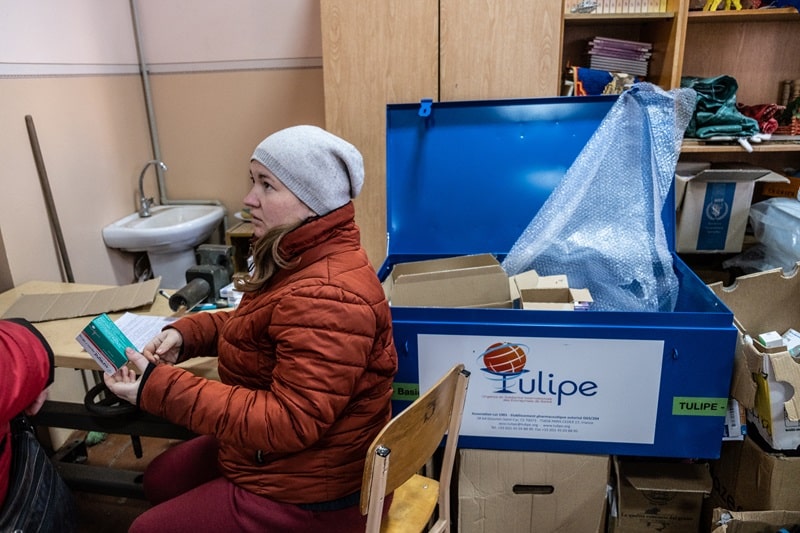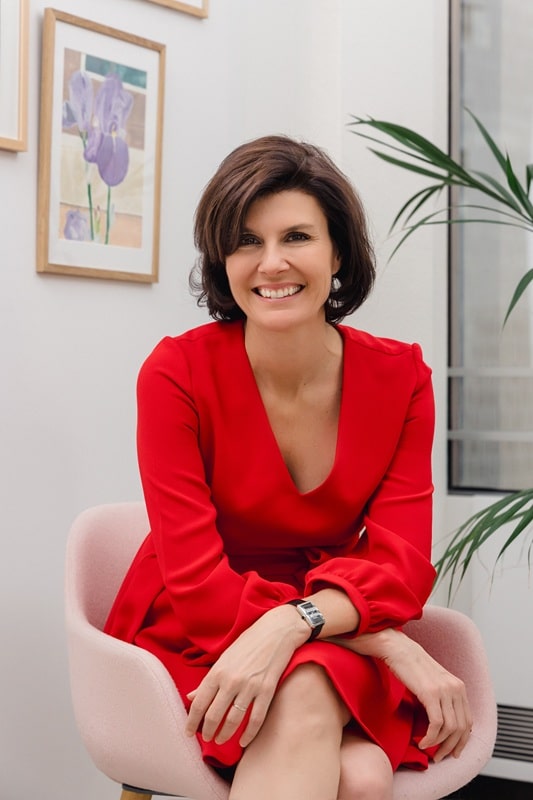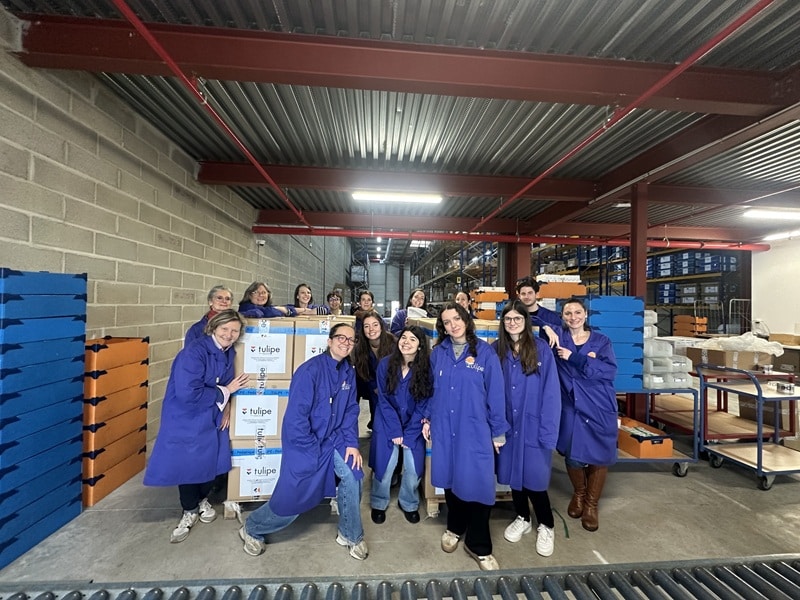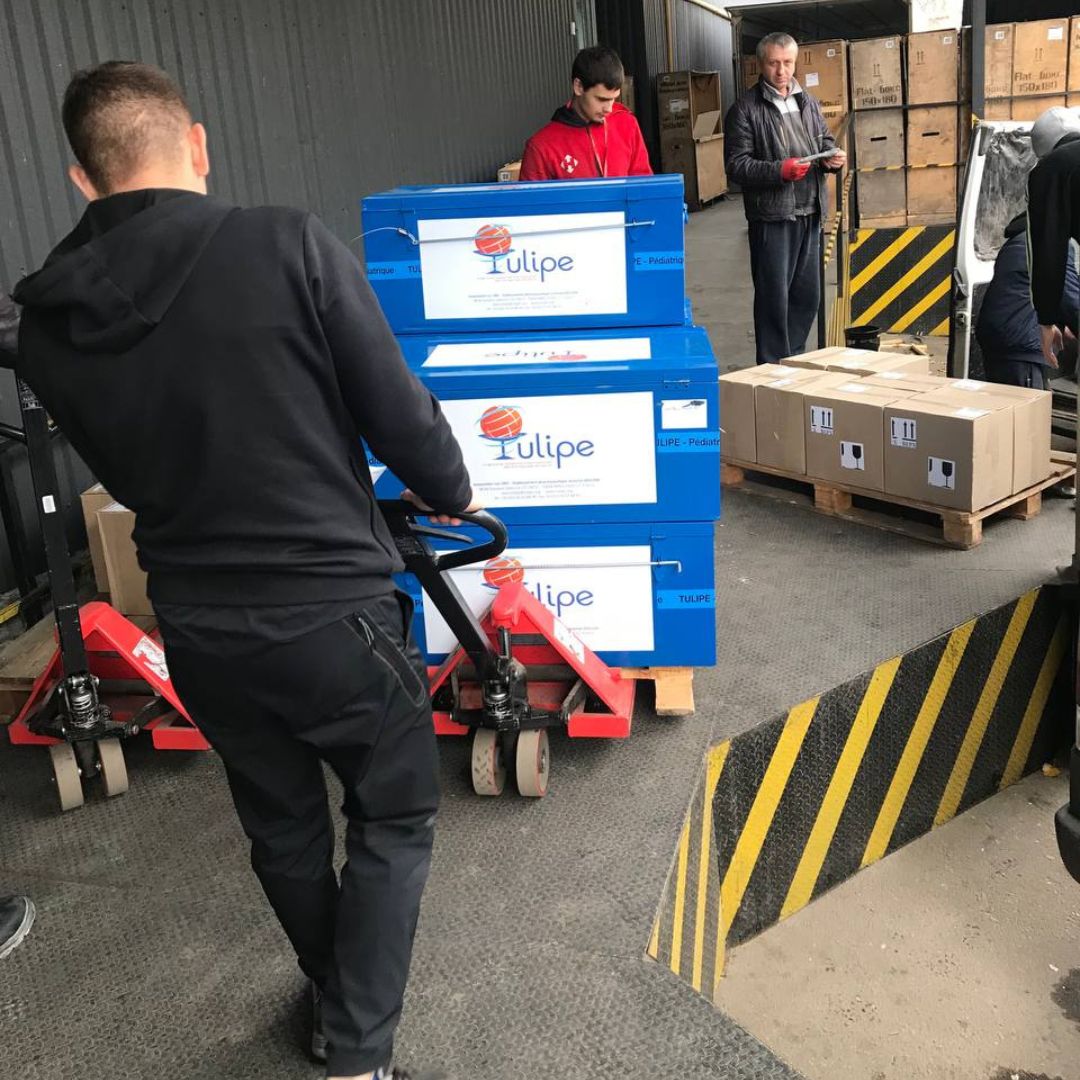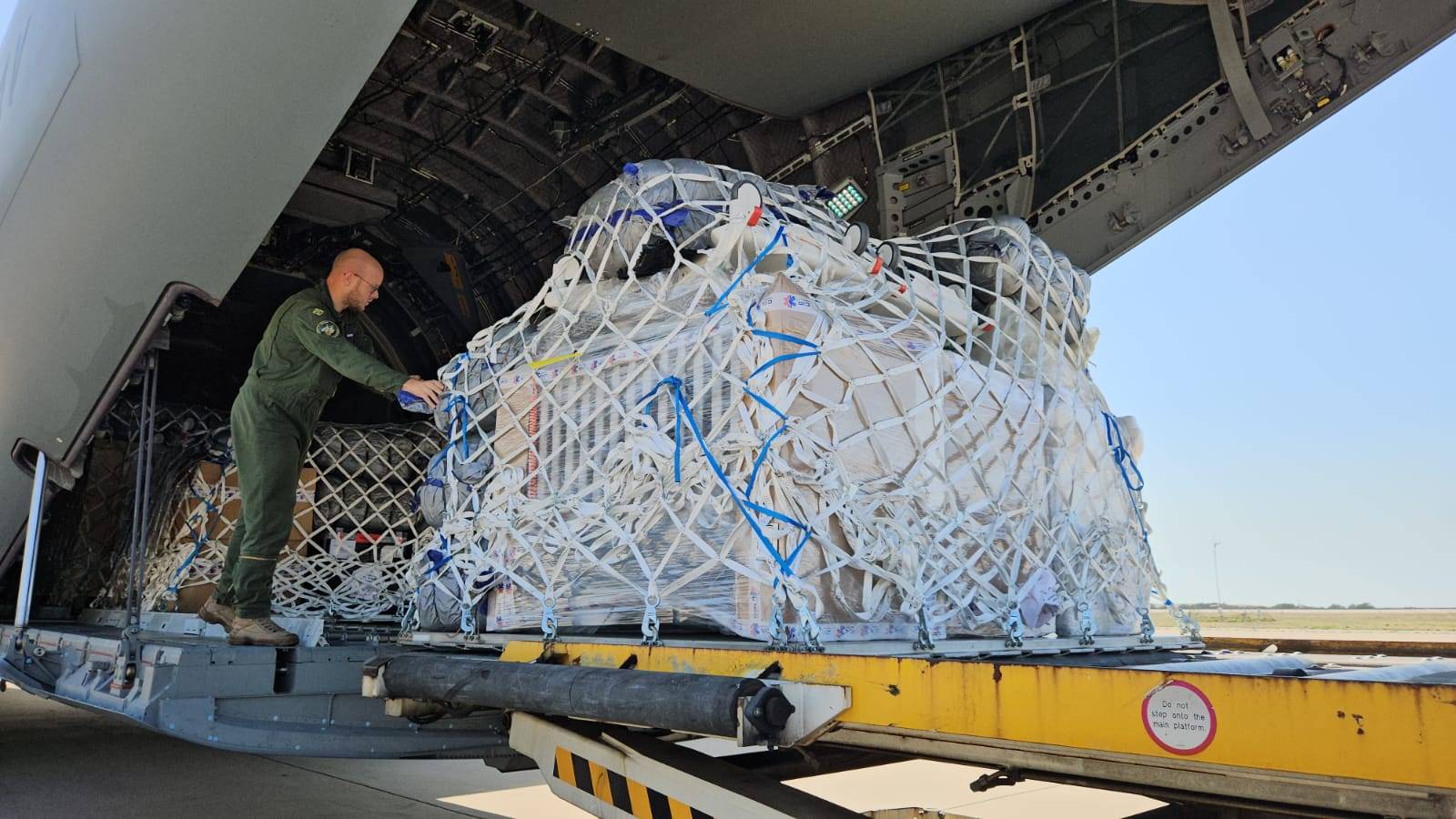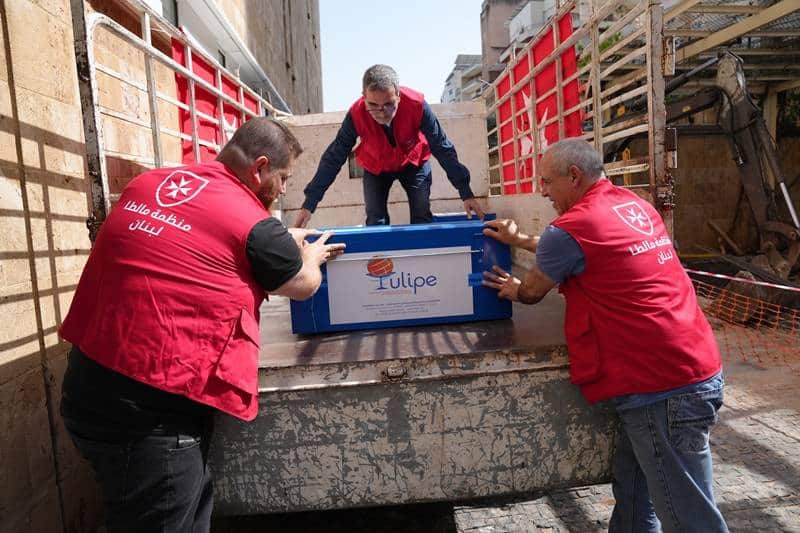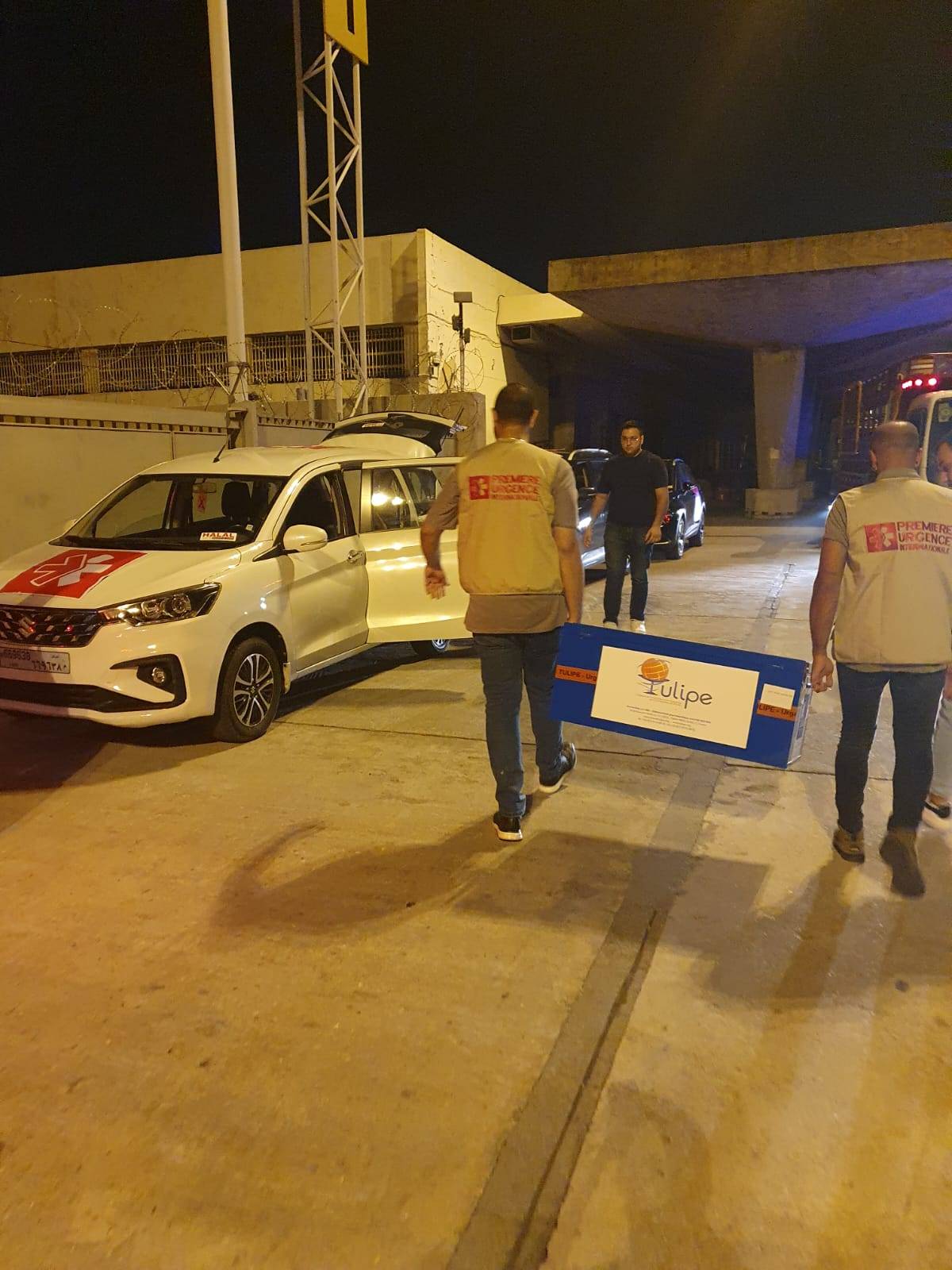Supported since the beginning of the war by the Tulipe association, the NGOs Motanka, the Comité d’Aide Médicale Ukraine and the Association Aide Médicale & Caritative France-Ukraine (AMCFU) receive valuable aid in the form of health products. In 2024, Tulipe shipped 98.5 tonnes of products to Ukraine, representing 65% of its annual activity. These figures, valid as at 31 October, compare with 148 tonnes shipped as at 31 December 2023. Over the year, twelve operations to donate healthcare products to NGOs were carried out, and three more are planned between now and the end of December. To mark the 1,000 days since the start of the Russian invasion of Ukraine, we give the floor to three personalities currently working on the ground:
What have been the main challenges encountered in distributing the basic necessities provided by Tulipe, and how have they been overcome in the current context?
Dr Tania Hoydash, coordinating doctor for the Comité d’Aide Médicale Ukraine :
“The challenges mainly concerned the identification of priority beneficiaries and logistics. We were able to rely on our contacts within the medical community, volunteer organisations and social protection agencies to prioritise beneficiaries effectively. In terms of logistics, our partnership with Nova Poshta, the largest logistics company in Ukraine, enabled Tulipe’s essential products to be delivered quickly and free of charge. We also worked with partner organisations in different regions to reach those most in need.
Gaëlle Girbes, founder of the NGO Motanka:
“The main difficulty remains customs, especially since the new law of 1 December 2023 imposes total control of incoming humanitarian donations. We have to provide numerous administrative documents, which is difficult to manage in the current climate. We only have a month to provide all the donation certificates to customs. As our convoys from France are scheduled for six-month periods, we cannot distribute everything in one month, which makes it impossible to provide substantial material aid from France. We have ended up buying locally, which limits our capacity for action. This law is also having an impact on local volunteers, who are trying to change the situation with the authorities.
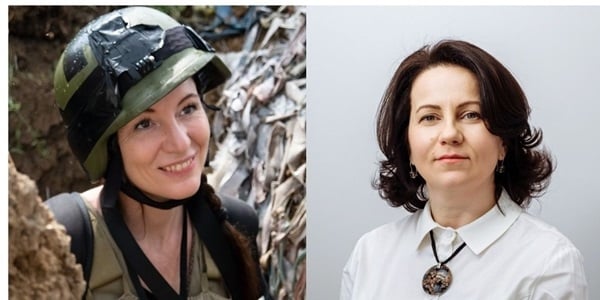
Diana Dols, Director of Humanitarian Operations, Association Aide Médicale & Caritative France-Ukraine (AMCFU):
“In almost three years of large-scale warfare, we have been faced with multiple and evolving challenges. At the start of the invasion, one of the first obstacles was the sudden break in the supply chain for medical products. Added to this was a sudden and massive increase in the number of war-wounded, which rapidly saturated local capacities. The destruction of pharmaceutical depots and the inaccessibility of certain production areas and beneficiaries, particularly in territories occupied or close to the fighting, made the situation even more critical.
Thanks to our experience gained since 2014 in the Donetsk and Luhansk regions (following the war in eastern Ukraine), and our network of local and international partners, we were able to react quickly. We mobilised a range of players: hospitals, municipalities, various ministries and health departments, the Ukrainian Road Hauliers Association, local NGOs, as well as volunteers who, sometimes risking their lives, used their own vehicles to deliver aid to dangerous areas.
After the liberation of several territories, new challenges emerged. These areas, often heavily damaged and still partially mined, required a tailored approach and a rapid response. We worked with local administrations and stabilisation teams to identify priority needs. One of the highlights was the delivery of medicines to hospitals that had been deliberately mined when Russian troops withdrew, and whose areas were still being cleared of mines.
Today, the challenges remain numerous, particularly in disaster-stricken or isolated areas where medical infrastructures and pharmacies are often non-existent due to destruction and persistent insecurity. We are concentrating our efforts in these areas to ensure access to essential medicines and care, working closely with primary care facilities, which are often the only ones able to operate in these remote regions. These more mobile teams ensure deliveries to areas that are difficult to access.
We support the development of initiatives such as mobile pharmacies, although they are not yet sufficiently widespread to cover all needs. We are also coordinating with the Ukrainian Ministry of Health, which centralises the collection of needs via its electronic system. For our part, we are making sure that donations are delivered quickly, and we are working with Tulipe to streamline deliveries and reduce delivery times.
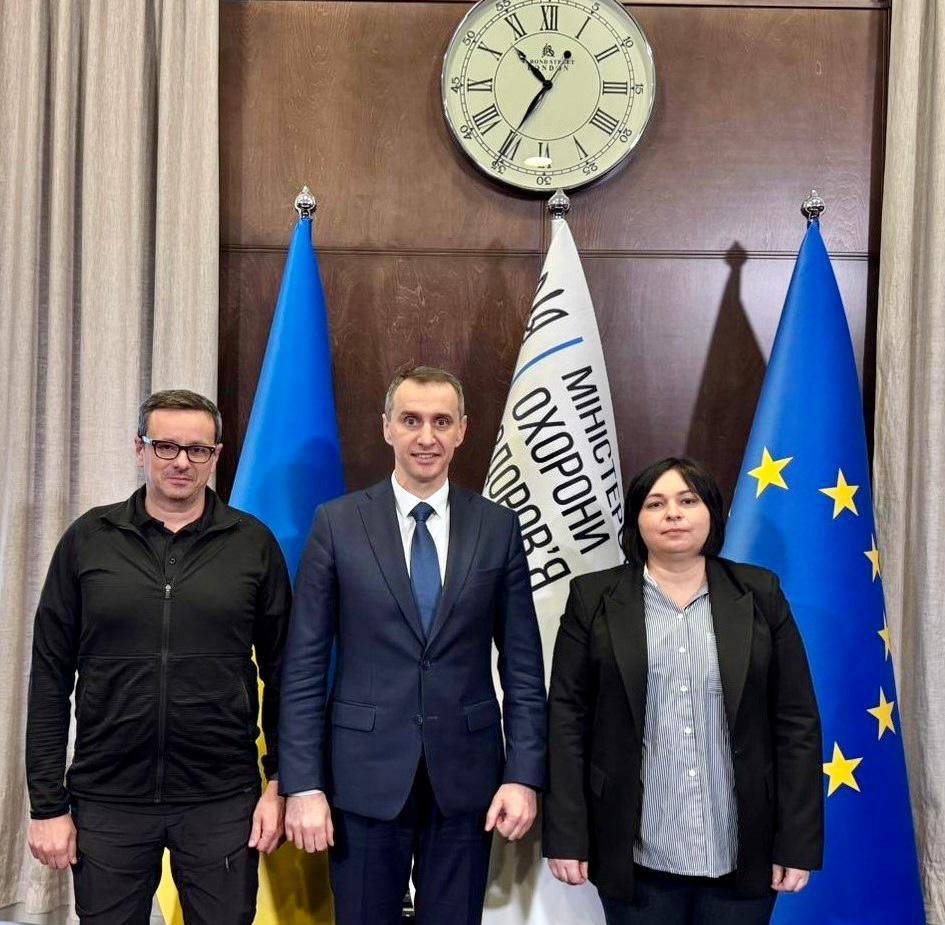
How have Tulipe’s donations of health products helped to improve the health and living conditions of people in Ukraine, and what concrete impact have you observed?
Dr Tania Hoydash :
“Tulipe’s aid has made it possible to respond to three critical needs: to provide essential medicines and consumables for people on the front line in the regions of Kharkiv, Kherson, Zaporizhzhia, Chernihiv and Odesa, who are often unable to purchase them due to a lack of resources or nearby pharmacies; to strengthen the capacity of medical institutions to respond to the needs of vulnerable populations; and to bridge periods when state funding does not cover all needs. Thanks to this aid, health establishments have been able to remain operational and maintain a stock of vital medicines for the affected populations”.
Gaëlle Girbes :
“In the field, Tulipe products are distributed in areas where there is no longer any access to healthcare: there are no doctors’ surgeries or pharmacies, and hospitals have been destroyed. These medicines enable thousands of people to follow their treatments, particularly for chronic illnesses such as diabetes, hypertension and heart disease, which cannot be interrupted. Our partners, volunteer doctors, are able to treat their patients free of charge. When I visit these places, I can see the impact of our aid: people can continue their treatment, and winter illnesses can be treated, which is crucial for these fragile populations, most of whom are elderly”.
Diana Dols :
“Tulipe’s contributions have had a significant impact, particularly in responding to emergencies. From the very first months of the invasion, their donations made it possible to respond to the most critical needs: treating large numbers of wounded, supporting hospitals that had come under attack, and intervening rapidly in liberated territories where the inhabitants had been deprived of healthcare for months.
It is difficult to list all the actions taken, but some illustrate this impact perfectly. In 2022, we were focused on supporting settlements in areas that were being invaded or encircled, and providing immediate aid to recently liberated territories (2022 – 2023). In 2024, we are continuing our efforts in towns such as Nikopol, regularly hit by drones and artillery in the Dnipro region, and Izioum, in the Kharkiv region.
Last May, deliveries of Enoxaparin were used to respond to the explosion in needs following the new Russian offensive in the Kharkiv region. More recently, in September, after a missile attack blocked access to the pharmaceutical warehouse at the Kharkiv regional hospital, we sent an emergency stock to ensure continuity of care.
Over and above emergencies, these donations help to maintain access to healthcare in particularly vulnerable regions. In Chernihiv, for example, medicines are distributed not only to hospitals but also to the local population by primary care teams who visit isolated villages that have become veritable medical deserts.
Finally, these donations are an important pillar for a health system weakened by the war. They meet a wide range of needs, from care for victims of the war to treatment for chronic, seasonal or serious illnesses such as cancer. During our recent meeting with the Minister for Health, Viktor Lyashko, he confirmed that this support was appreciated and essential if the system was not to collapse completely.
In short, over and above their medical impact, these products give Ukrainians a message of hope: that they are not alone in the face of this war and its consequences.
